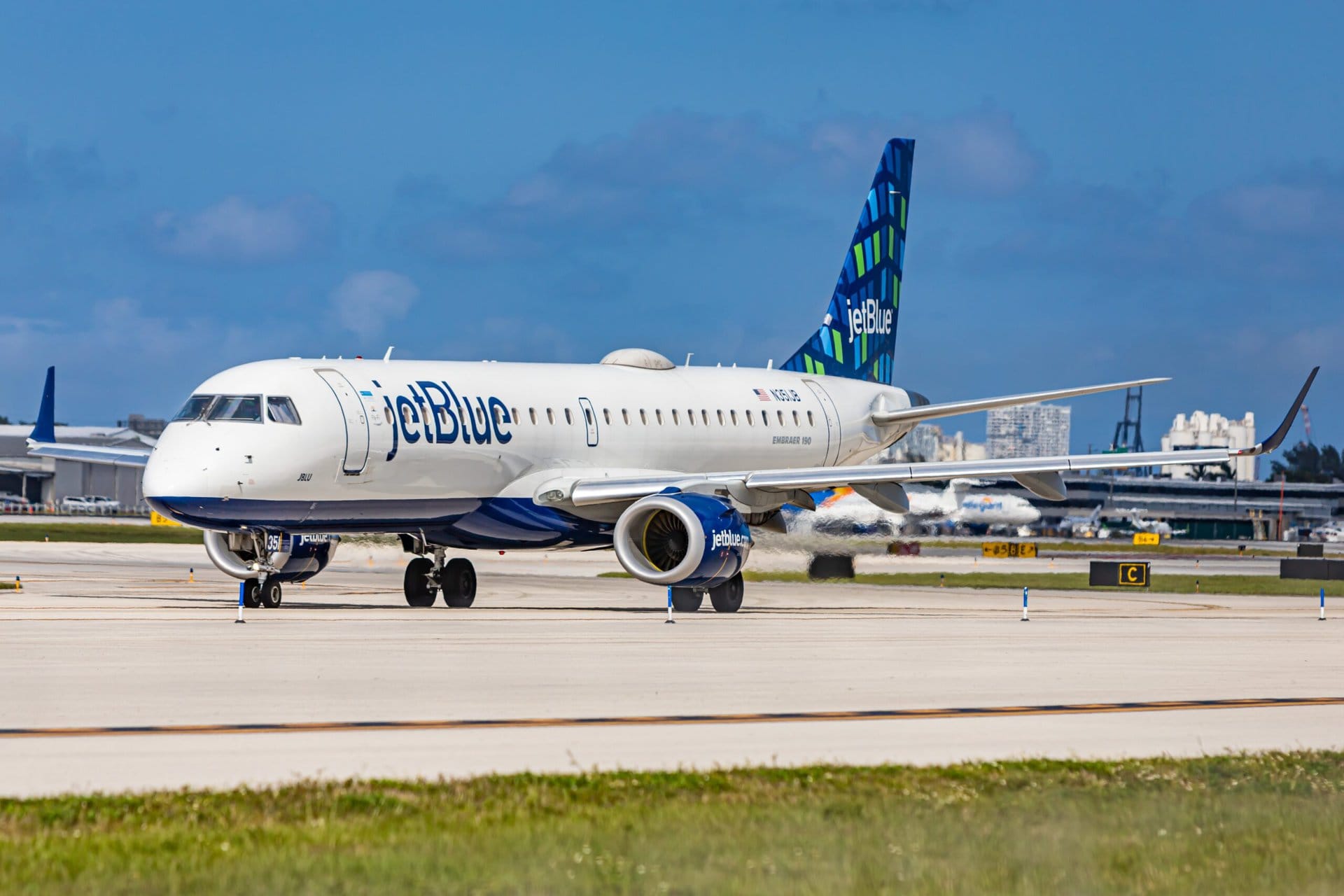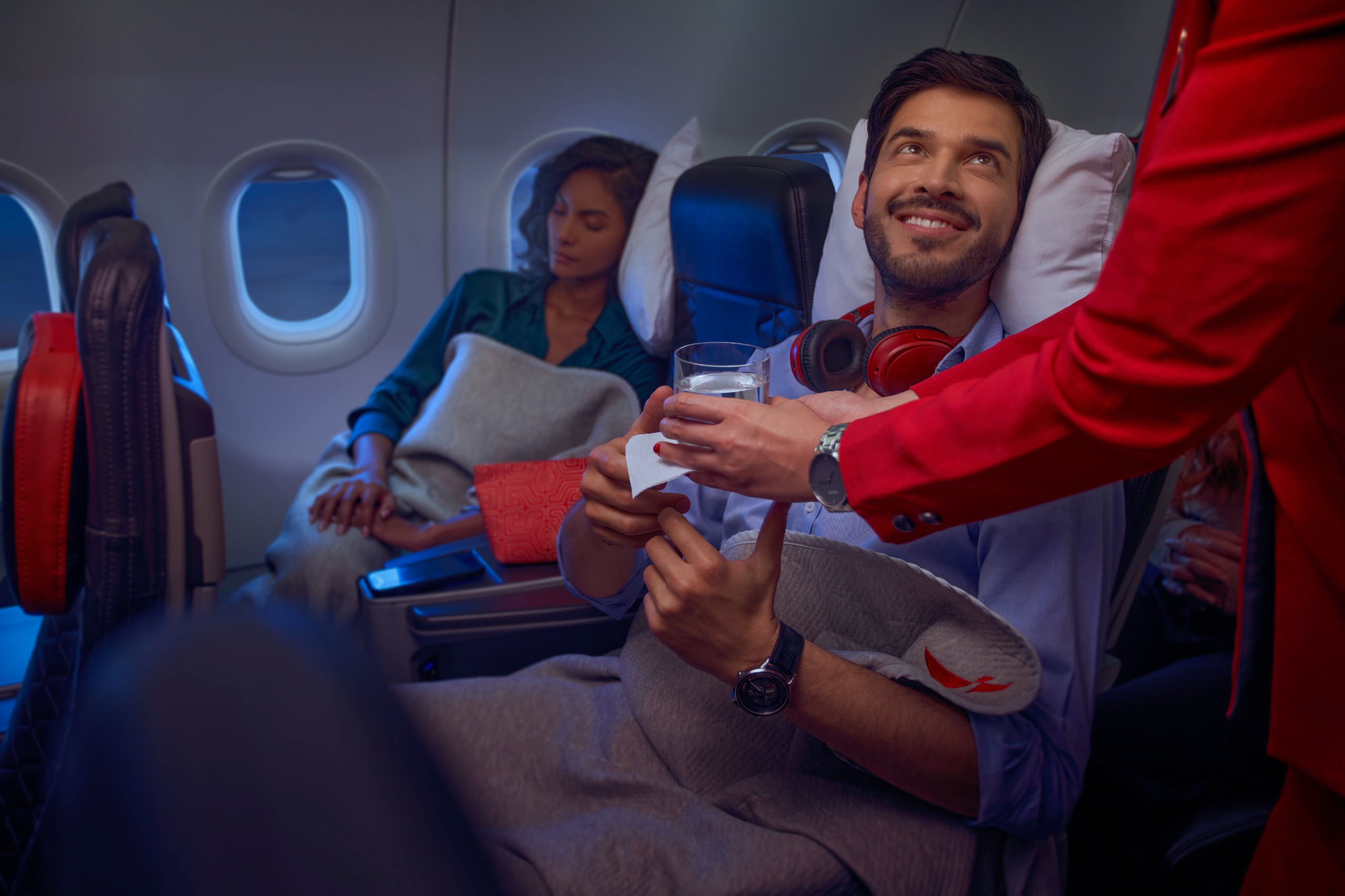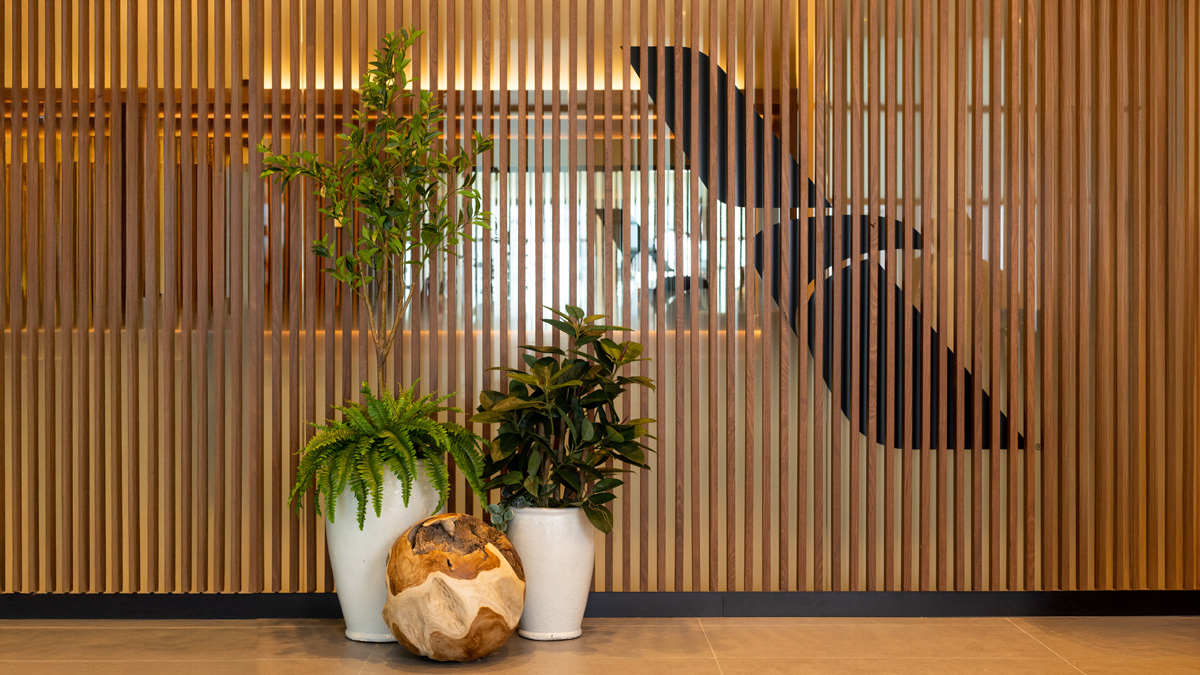From Basic to Extra: Delta’s New Booking System Gets a Personality Upgrade
The airline is retiring “Basic Economy” and launches a new tiered fare system designed to give travelers more flexibility, customization, and transparency
by George Gomez
May 16, 2025
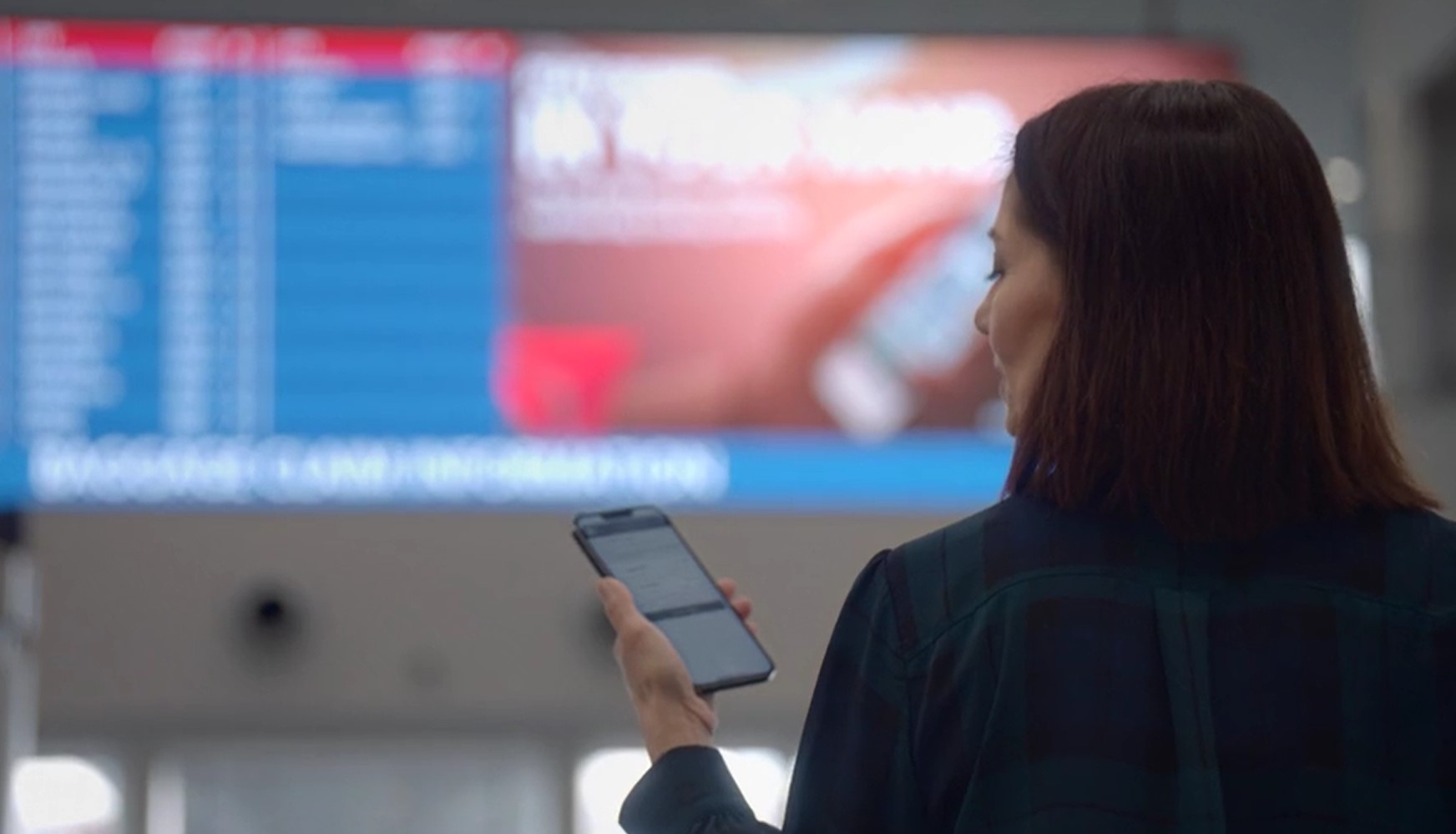
Photo: Courtesy of Delta
The commercial aviation landscape in North America is undergoing significant transformations. United Airlines recently unveiled its all-new Polaris Business Class cabin in an impressive event held in Brooklyn, and American Airlines is preparing to launch its highly anticipated Flagship Suite cabins this coming June, which will feature on its fleet of brand-new Boeing 787-9 Dreamliners. Now, Delta Air Lines has opted to modify the names of certain onboard products.
Although this change is mainly cosmetic, these developments indicate a robust push among major airlines to innovate and enhance their offerings to meet the evolving expectations of travelers better.
Say Goodbye to “Basic Economy”
Delta is retiring “Basic Economy.” But don’t get too excited—the fare isn’t disappearing. Instead, it’s getting a new name and becoming part of a broader, more flexible approach to booking airfare that the airline says better reflects what travelers want: clarity and choice.
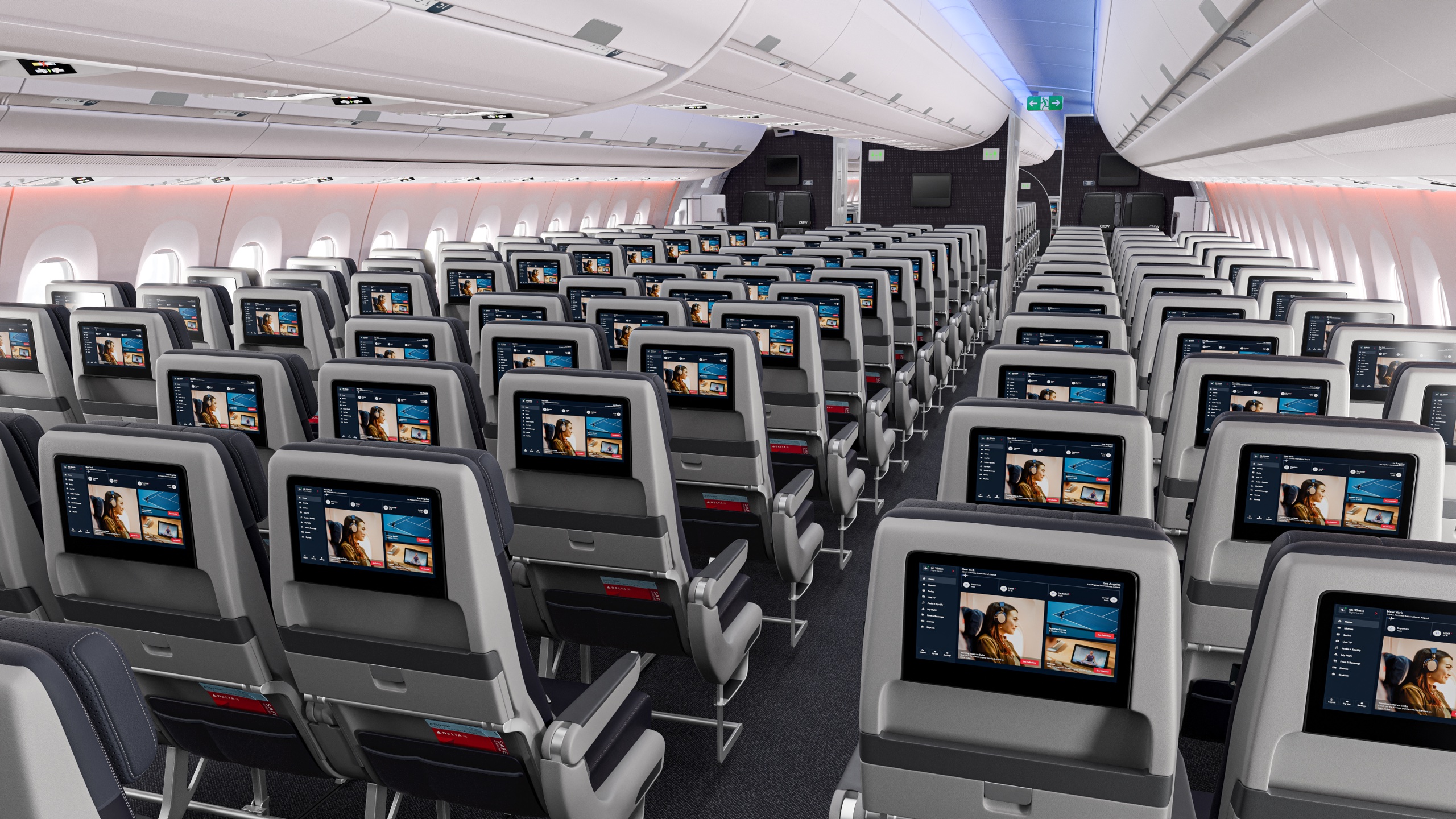
Photo: Courtesy of Delta Air Lines
Beginning May 15, customers booking travel for flights departing October 1 or later will notice significant changes to Delta’s fare products and booking interface. The goal? Simplify decision-making, customize travel based on preferences, and provide a clearer picture of what each ticket includes.
A New Way to Compare
The heart of Delta’s change is a newly tiered structure across all cabins, starting with what’s now being called Delta Main—the rebranded version of Main Cabin.
Instead of “Basic Economy,” travelers will choose between three Main fare types:

Photo: Courtesy of Delta
Delta Main Basic: Formerly Basic Economy, this entry-level fare includes limited flexibility, no seat selection until check-in, and no ability to earn miles or MQDs.
Delta Main Classic: A standard Main Cabin experience with full mileage earning (5 miles per dollar, excluding taxes), advance seat selection, better boarding position, and eCredit for cancellations.
Delta Main Extra: Designed for those seeking more flexibility, this top-tier Main fare earns 7 miles per dollar and includes refundability back to the original form of payment, higher boarding priority, and same-day standby.
Other Delta seat products—Comfort, First, Premium Select, and Delta One—will also offer “Classic” and “Extra” variants, allowing for further customization based on each traveler’s budget and priorities.
In some markets, the “Extra” option may appear as “Refundable,” offering similar flexibility with cancellation and refund rights.
A Modernized Booking Interface
To support these changes, Delta is rolling out a redesigned shopping experience across its website and Fly Delta app. Travelers can now see fare attributes at a glance and compare across products more easily.
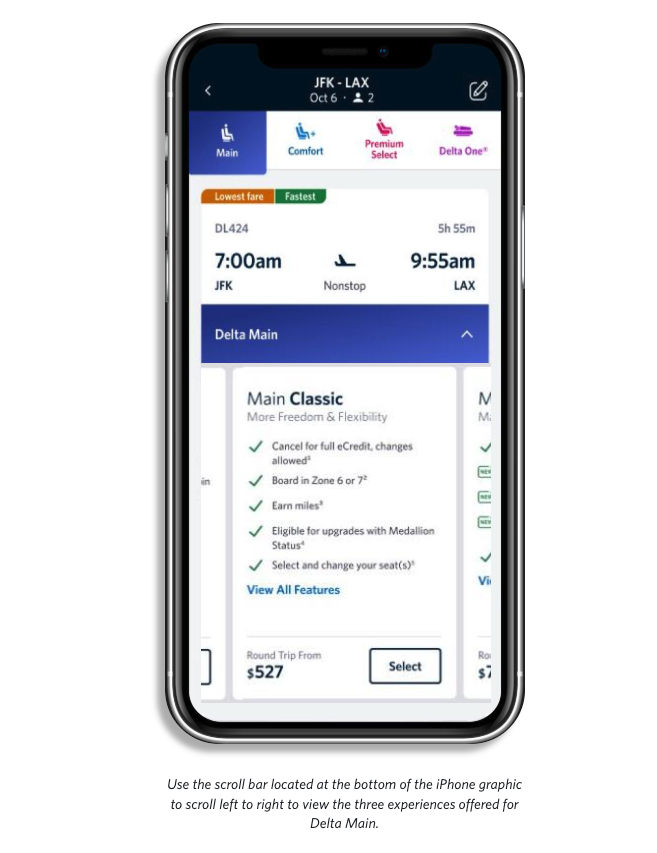
Photo: Courtesy of Delta
“As we listen and learn about what our customers want when it comes to their travel, we know that clarity and choice are paramount,” said Eric Phillips, Delta’s Senior Vice President and Chief Digital Officer. “Our reimagined shopping experience gives customers more options and flexibility to pick the travel experience that works best for them, and a full picture of all the benefits of flying with Delta.”
Booking Now, Flying Later
Though the updated booking structure goes live on May 15, travelers won’t see changes onboard until October 1. If you’re flying before then—even if you see new product names in the app—your in-flight experience will remain the same.
Delta says this staggered approach gives its teams time to prepare and customers time to learn how the new structure works.
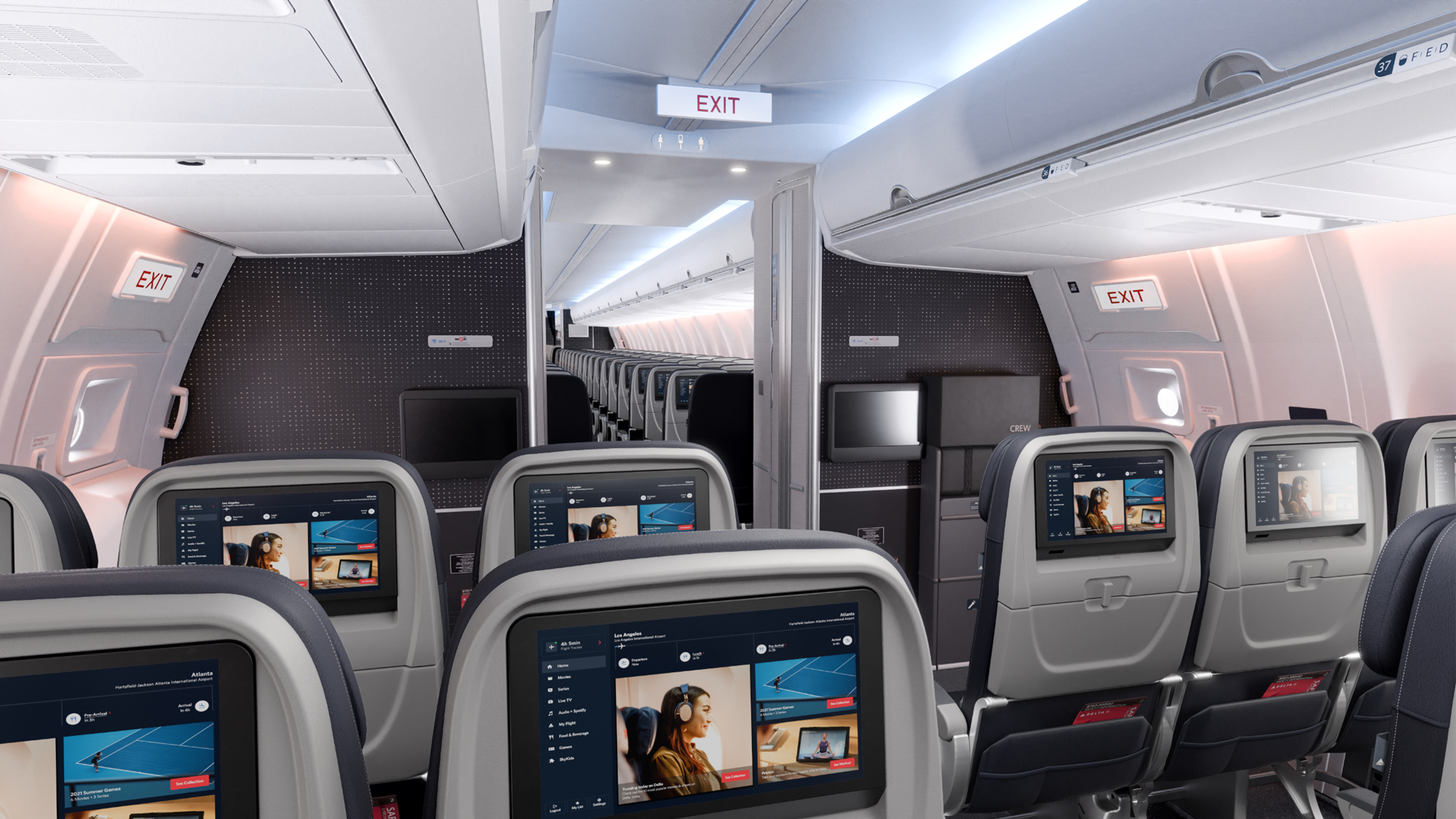
Photo: Courtesy of Delta Air Lines
“Our 100,000-plus team is committed to making Delta’s customer experience, both on the ground and in the air, the best in the industry—one marked by a high degree of personalization,” said Erik Snell, Chief Customer Experience Officer. “We see this as a continuation of that journey: one in which customers are informed and empowered to select the right experience for them.”
How Does This Affect Elite Members?
For Delta Medallion members, status and the type of product purchased remain the primary factors for upgrade eligibility.
But there’s a new wrinkle: If two members with identical status purchase the same product, the one who booked the “Extra” tier will be prioritized.
What Happens with Mixed Itineraries?
The new structure applies to flights originating in the U.S. and Canada. On international itineraries that combine Delta flights with those operated by partners like KLM or Korean Air, the new labels will apply only to the Delta segments.

Photo: Delta Air Lines and Korean Air Joint Venture. Courtesy of Delta Air Lines
In markets where “Extra” isn’t available, the legacy “Refundable” product will still appear.
A Subtle Shift, Big Implications
While much of this may sound like a rebrand, Delta’s changes reflect a broader trend: giving travelers more transparency into what they’re buying and the flexibility to pay for only what they need. It’s an airline acknowledging that travel priorities change—trip by trip.
By doing away with the stigma of “Basic Economy” and introducing clearer, more tiered options, Delta is betting that simplicity, not just service, is what customers value most.
When Will You Notice the Changes?
May 15: New booking structure and experience go live on Delta.com and the Fly Delta app for flights departing October 1 and beyond.
October 1: The new fare products and experiences debut on Delta-operated flights from the U.S. and Canada.
Whether you’re a casual flyer or a frequent business traveler, your Delta booking journey is about to feel very different—but, the airline hopes, also a lot more intuitive.

